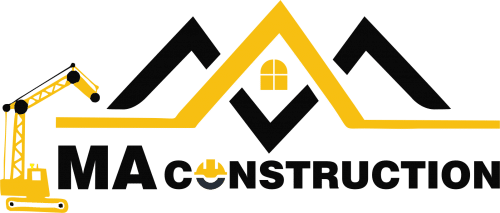Technology has completely changed how we live in the digital age. We are continuously seeking for methods to make our everyday routines simpler, from smartphones to smart houses. Home automation and smart houses are two new innovations that have gained popularity. Both of these technologies strive to make our lives better, but they are very different in terms of functionality, capacity, and practicality. The popular Home Remodeling Contractors Boston examine the main differences between smart homes and home automation in this article.
What are smart homes, exactly?
Smart homes are made to provide owners total control over every aspect of their bathroom, Kitchen and other living space, including lighting, temperature, security, and entertainment. To automate household chores and increase energy efficiency, they integrate a variety of smart equipment, including sensors, cameras, speakers, and other appliances. An intelligent network powers smart homes, linking all gadgets and sensors to a central hub that can be managed by a computer, tablet, or smartphone.

What is home automation?
Smart houses are a sub-type of “home automation,” which involves automating particular processes or systems inside a house. For instance, you don’t necessarily need to link your lighting, heating, or security systems to a central hub in order to use home automation to control them. Often standalone devices, home automation systems can be operated via a remote control or a smartphone app.
Key Differences Between Smart Homes and Home Automation
Now that we understand the basics of smart homes and home automation let’s dive into the key differences between these two technologies.
Control and Integration
Complete integration and control over all the appliances and systems in a home are features of smart homes. Through a single point of access, such as a voice assistant or mobile app, all devices can be managed. Nevertheless, because each system must be controlled independently, home automation only provides a limited level of integration and control.
Convenience
The purpose of smart homes is to make daily tasks and routines easier to manage for homeowners. For instance, a smart thermostat may automatically change a home’s temperature based on the preferences of the owner, and smart lighting can be managed using voice commands via a smartphone app. Home automation, on the other hand, simply automates particular jobs or systems, thus it only gives a limited amount of convenience.
Complexity
Smart homes can be complex to set up and maintain, as they involve a range of smart devices, sensors, and appliances. They may need regular updates and maintenance and require a high level of technical knowledge and ability to set up and maintain. Home automation systems, on the other hand, often contain standalone devices that are designed for specific tasks, making them simpler to install and manage.
Conclusion
In conclusion, smart homes and home automation provide homeowners with a number of advantages, including increased convenience and control as well as improved energy efficiency. Both technologies strive to make our lives easier, but they are very different in terms of functionality, capacity, and practicality. Home automation can be your best option if you want to automate particular processes or systems in your house. A smart home, however, would be a better choice if you’re searching for total integration and control over all the systems and devices in your house.
You may choose a solution that suits your needs and tastes by being aware of the distinctions between these two technologies. Whether you go for home automation or a smart home, you’ll be one step closer to having a more comfortable and convenient living space.



